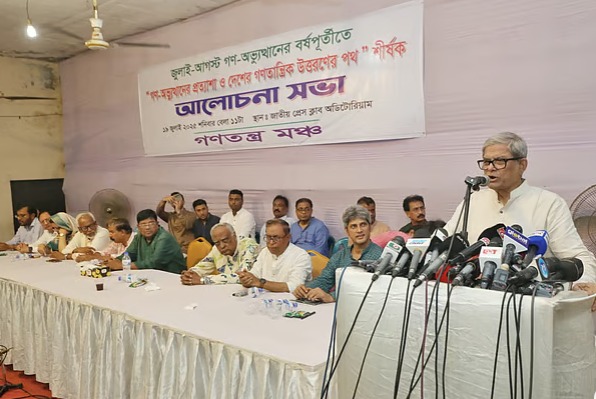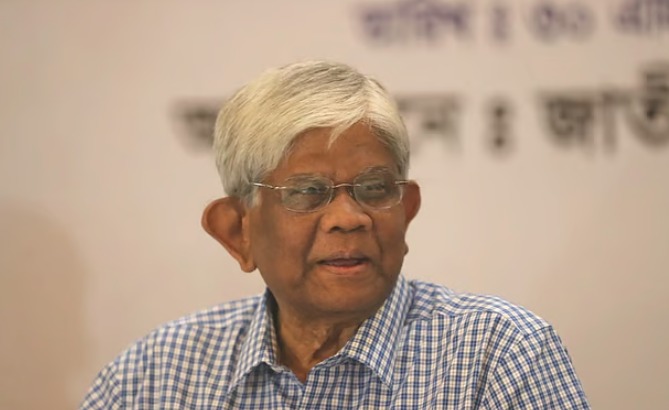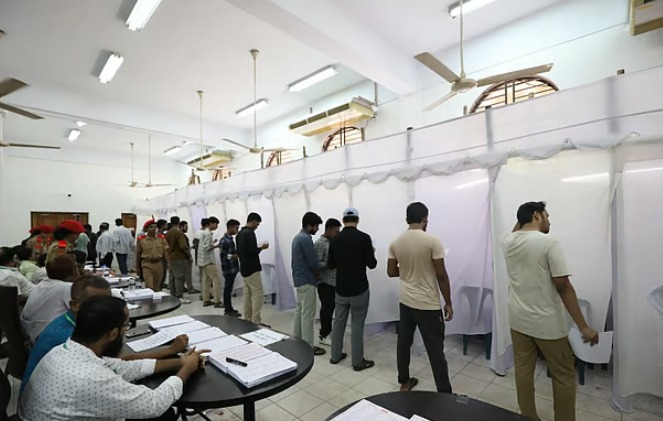Desk Report,
No concessions on 1971 and democracy issues: Mirza Fakhrul
BNP Secretary General Mirza Fakhrul Islam Alamgir has said that there is no compromise on the issue of 1971 and democracy.
No concessions on 1971 and democracy issues: Mirza Fakhrul
Mirza Fakhrul said this at a discussion meeting organized by the Democracy Forum on Saturday. He said, ‘1971 is our main issue. The war of independence is our main issue, there is no compromise (concessions) there. We have no compromise in the democratic system. We definitely believe in democracy and want democracy.’
This discussion meeting titled ‘Expectations of the mass uprising and the path to the country’s democratic transition’ was organized at the National Press Club auditorium on the anniversary of the July-August mass uprising. ‘The situation is becoming more complicated with each passing day,’ the BNP Secretary General said, ‘It seems to me that those who do not believe in democracy, those who do not believe in the progress of the people, those who do not believe in the politics of building a society free of exploitation, are forging an alliance again. It seems to me that the fascist forces that we were able to expel are organizing from within and are involved in conspiring to regain power.’
Mirza Fakhrul expressed concern about the alarming increase in mobocracy, murder, and kidnapping in the country. He said, ‘I do not want to speak against any political party in particular, I will just say that if we lose the opportunity that has come before us, Bangladesh will go backward for many more years. Every time there will be a coup, people will die; an opportunity will be created and we will lose that opportunity due to irresponsibility, this should not be allowed to happen.’
Mirza Fakhrul said, ‘The longer you delay, the more the situation is getting muddled, those who were against the people and democracy, have started working to sabotage this democracy again. The faster we can move forward with these three issues – reforms, charters, and elections – without delay, the better it will be for the country. The responsibility for this undoubtedly lies with this interim government.’
At the rally, Jonayed Saki, the chief coordinator of the Mass Solidarity Movement, said, ‘Establishing consensus is essential for democracy. If we cannot reach consensus, then democracy can be disrupted. The allies of fallen fascism and foreign conspirators can destroy the entire process. Reforms, trials and elections have become essential.’ He said, ‘We want trials, reforms and elections to complete reforms. Reforms will not be completed without elections.’
Hasnat Qayyum, the chief coordinator of the State Reform Movement, said, ‘The kind of change we expected after the mass uprising has not happened.’
AB Party Chairman Mujibur Rahman Manju said, ‘No one knows the names of 90 percent of the people who were in the mass uprising movement. Many of us are minimizing the contribution of the mass uprising for political interests. We need to think about where we would have been if Sheikh Hasina had not fallen. He said that if Hasina had not fallen, Abu Sayeed would have been presented as a militant.
President of the People’s Rights Council Nurul Haque Nur said, “There has been no change in the character of the administration. They could not fulfill the expectations that people had from Muhammad Yunus and his advisors. If I were asked to give a mark on the work of this government in 11 months, I would say 4 out of 10.”
National Citizens Party (NCP) member secretary Akhtar Hossain said that the expectation of the mass uprising was not to engage in divisive politics. But that is still going on. It should have abandoned the politics of violence and division and created a new policy-based political settlement for the people of the country. The expectation was a judicial structure where people who were disappeared and murdered in the past would get their justice. That is not yet visible. He called on the interim government to ensure the neutrality of the election field.
The discussion meeting was chaired by Rafiqul Islam Bablu, chief coordinator of the Democracy Forum. Other speakers included Saiful Haque, general secretary of the Revolutionary Workers Party, Mustafa Jamal Haider, head of the 12-party alliance and chairman of the Jatiya Party (Kazi Jafar), Shahid Ullah Kaiser, general secretary of Nagorik Oikya, Tania Rob, vice president of JSD, Mizanur Rahman, general secretary of Gono Forum, Nayeem Jahangir, convener of the Muktijoddha Council, and Seema Dutta, president of the Nari Mukti Kendra, among others.



